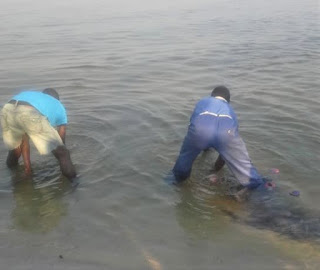HIGHLIGHTS OF LIFE IN LUNGA- PART 2
ABA- UNGA NEVER DIE! Yes, you read right. Ungas never die! They only transform. To know what I mean, read on. I lived in a village at the northern end of Bwalya Mponda chiefdom. The next, known as Maishike was north-east. There was my grandfather’s desolate village of Matolongo , otherwise known up to now as Chibolya, somewhere in between. Most of the evenings, we could see some huge bright torch light further down Chibolya and occasionally some sound of gunfire. One day, I asked my mother where the bright torch- light was coming from: “It’s Musanika (Torchbearer). He’s a dead person walking by the shores of Chibolya.” “You mean a ghost? What about the gunfire?” “Oh, I never told you,” she said, with a gentle love tap on my shoulder. “The gunfire is real and it’s coming from another dead man called Sande Puwa.” “Who is Sande Puwa and why does he fire guns and at what?” I asked out of typical child curiosity. “Sande Puwa was a skillful hunter. During on
 SoundCloud
SoundCloud



